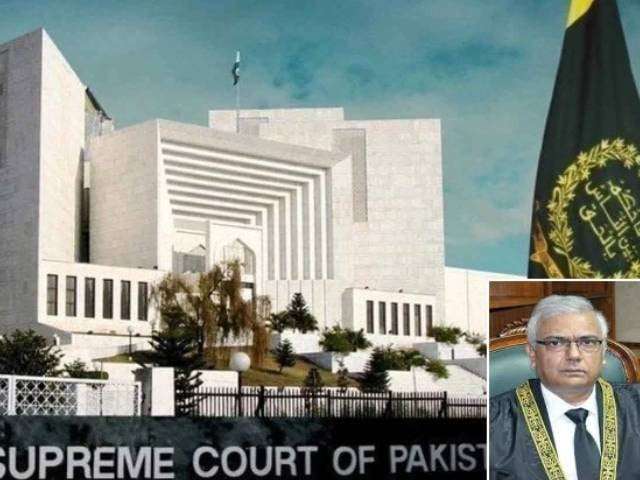Introduction
The Judicial Commission of Pakistan (JCP) has recently made a significant decision by appointing Justice Amin-ud-Din Khan as the head of the newly constituted constitutional bench in the Supreme Court. This decision was reached after a 7-5 split vote led by Chief Justice Yahya Afridi. The formation of this bench marks a pivotal moment in Pakistan’s judicial landscape, highlighting the importance of balanced representation from various provinces and setting a precedent for future judicial appointments and constitutional interpretations.
Formation of the Constitutional Bench
The Decision Process
The JCP, under the leadership of Chief Justice Yahya Afridi, constituted the constitutional bench through a closely contested 7-5 vote. The majority of the commission members voted in favor of establishing the bench, reflecting a consensus on the need for such a judicial body to address pressing constitutional matters.
Composition of the Bench
The constitutional bench will operate for a period of 60 days and will be headed by Justice Amin-ud-Din Khan. The bench includes several esteemed Justices:
- Justice Ayesha Malik: Representing Punjab
- Justice Naeem Akhtar Afghan: Representing Balochistan
- Justice Athar Minallah
- Justice Hassan Azhar Rizvi
- Justice Musarrat Hilali
- Justice Jamal Khan Mandokhail: Also representing Balochistan
Representation and Balance
The inclusion of Justices from different provinces ensures a balanced representation, crucial for addressing the diverse legal challenges across Pakistan. Justice Ayesha Malik’s presence represents Punjab, while Justices Naeem Akhtar Afghan and Jamal Khan Mandokhail bring perspectives from Balochistan.
Significance of the Constitutional Bench
Judicial Authority and Scope
The newly formed constitutional bench will oversee cases involving original, appellate, and advisory jurisdiction of the Supreme Court. This broad mandate allows the bench to handle a wide range of constitutional issues, ensuring that pivotal legal questions are addressed comprehensively.
Legal Framework and Amendments
The establishment of constitutional benches was made possible through an amendment to Article 191-A of the Pakistani Constitution. The amended article states, “There shall be a constitutional bench of the Supreme Court, which may comprise an equal number of judges from each province.” This amendment underscores the importance of provincial representation in the highest judicial body of Pakistan.
The 26th Constitutional Amendment
The 26th Constitutional Amendment, passed on October 21, played a crucial role in the formation of these benches. This controversial amendment, which required a two-thirds majority in parliament, altered the selection procedure for the Chief Justice of Pakistan and facilitated the creation of constitutional benches in the Supreme Court. The amendment reflects a significant shift in the judicial appointment process, aiming to ensure greater transparency and representation.
Judicial Commission of Pakistan: Composition and Responsibilities
Commission Members
The JCP comprises 13 members, including senior judges, lawmakers, and representatives from various legal and governmental bodies. Key members involved in the recent decision include:
- Chief Justice Yahya Afridi
- Senior Puisne Judge Justice Shah
- Justice Akhtar
- Justice Amin-ud-Din Khan
- Senator Farooq H. Naek
- MNA Sheikh Aftab Ahmad
- MNA Omar Ayub
- Roshan Khursheed Bharucha
- Law Minister Azam Nazeer Tarar
- Senator Shibli Faraz
- Attorney General for Pakistan Mansoor Usman Awan
- Pakistan Bar Council Representative Akhtar Hussain
Responsibilities of the JCP
The Judicial Commission is responsible for making appointments to the Supreme Court, high courts, and the Federal Shariat Court (FSC). The commission’s role is pivotal in ensuring the integrity and efficacy of Pakistan’s judicial system, particularly through the selection of competent and impartial judges.
Implications of the Constitutional Bench
Enhancing Judicial Efficiency
The creation of constitutional benches is expected to enhance the efficiency of the Supreme Court in dealing with complex constitutional issues. By having a dedicated bench, the Supreme Court can ensure that such matters receive focused attention and are resolved in a timely manner.
Strengthening Judicial Independence
The balanced representation from different provinces on the constitutional bench reinforces the independence and impartiality of the judiciary. It ensures that diverse regional perspectives are considered in judicial decisions, promoting fairness and justice.
Addressing Controversial Issues
The constitutional bench will play a critical role in addressing controversial and high-stakes issues, such as amendments to the constitution, fundamental rights, and the separation of powers. The bench’s decisions will have far-reaching implications for Pakistan’s legal and political landscape.
Conclusion
The appointment of Justice Amin-ud-Din Khan as the head of the constitutional bench by the Judicial Commission of Pakistan marks a significant milestone in the country’s judicial history. The formation of this bench, driven by the 26th Constitutional Amendment, underscores the commitment to balanced provincial representation and judicial independence. As the bench begins its work, it is poised to address critical constitutional issues and contribute to the strengthening of Pakistan’s legal system.
FAQs
What is the role of the constitutional bench in the Supreme Court of Pakistan?
The constitutional bench is tasked with handling original, appellate, and advisory jurisdiction cases related to constitutional matters. It ensures that significant legal questions are addressed comprehensively and efficiently.
How was the decision to form the constitutional bench made?
The decision was made by the Judicial Commission of Pakistan (JCP) through a 7-5 split vote led by Chief Justice Yahya Afridi. The majority of commission members voted in favor of forming the bench.
What is the significance of the 26th Constitutional Amendment?
The 26th Constitutional Amendment changed the procedure for selecting the Chief Justice of Pakistan and facilitated the creation of constitutional benches in the Supreme Court. It aims to ensure greater transparency and representation in judicial appointments.
Who are the members of the newly formed constitutional bench?
The bench is headed by Justice Amin-ud-Din Khan and includes Justices Ayesha Malik, Naeem Akhtar Afghan, Athar Minallah, Hassan Azhar Rizvi, Musarrat Hilali, and Jamal Khan Mandokhail.
What are the expected outcomes of the new constitutional bench?
The bench is expected to enhance judicial efficiency, strengthen judicial independence, and address controversial constitutional issues. Its decisions will have significant implications for Pakistan’s legal and political landscape.



